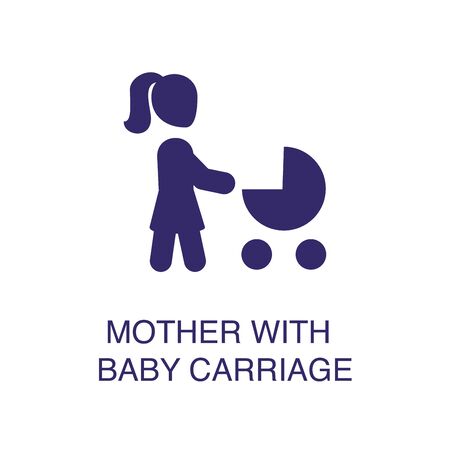Understanding Childcare Provision in Britain
When accessing quality childcare as a single parent in Britain, it is essential to have a clear understanding of the range of childcare options available and the regulatory standards that underpin them. The UK offers several types of formal childcare, each designed to meet the diverse needs of families and children. Among the most widely used services are nurseries, childminders, and after-school clubs.
Nurseries provide structured care and early years education for children from infancy up to school age. These settings are typically regulated by Ofsted in England, the Care Inspectorate in Scotland, and equivalent bodies in Wales and Northern Ireland. Standards cover staff qualifications, safety protocols, curriculum delivery, and child-to-staff ratios to ensure a safe and stimulating environment.
Childminders are registered professionals who care for small groups of children in their own homes. This flexible option is particularly valued by single parents due to its adaptability around irregular work patterns. Childminders are also inspected regularly by regulatory authorities, ensuring they meet health, safety, and educational benchmarks.
After-school clubs provide care for school-aged children outside standard school hours. These clubs operate on school premises or within community centres and offer supervised activities, homework support, and social opportunities. They are required to adhere to local safeguarding policies and maintain appropriate staffing levels.
All regulated childcare providers in Britain must comply with rigorous national standards, giving parents confidence in the quality and safety of care their children receive. Understanding these options enables single parents to make informed choices based on their family’s specific circumstances and needs.
Assessing Quality and Safety in Childcare Settings
For single parents in Britain, ensuring that your child receives high-quality and safe childcare is paramount. With a range of providers available, it’s essential to be thorough in your evaluation process. Here are the key factors you should consider when assessing childcare options:
Guidance on Evaluating Childcare Providers
Start by researching local nurseries, childminders, or after-school clubs. Arrange visits so you can observe how staff interact with children and assess the environment firsthand. Ask questions about their daily routines, discipline policies, and communication methods with parents.
The Importance of Ofsted Ratings
In England, Ofsted (Office for Standards in Education, Children’s Services and Skills) inspects and regulates childcare providers. An Ofsted report offers an independent assessment of the setting’s quality and safety. Look for settings rated as ‘Good’ or ‘Outstanding’. You can search for recent inspection reports online or ask providers directly for their latest rating.
| Ofsted Rating | What It Means |
|---|---|
| Outstanding | Exceptional care, teaching, and safeguarding standards |
| Good | Consistently strong performance with minor areas to improve |
| Requires Improvement | Some weaknesses identified; not yet meeting all standards |
| Inadequate | Poor provision; significant improvement required immediately |
Staff Qualifications and Training
Qualified staff are crucial for both safety and developmental support. Inquire about the qualifications held by team members – for example, Level 3 Early Years Educator or higher. Check whether staff receive regular training on first aid, safeguarding, and child development.
Safeguarding Procedures
All reputable childcare providers must have robust safeguarding procedures in place to protect children from harm. Ask about their policies on supervision, security at pick-up/drop-off times, and how they handle concerns about a child’s welfare. A designated safeguarding lead should always be available on site.
Child Wellbeing and Emotional Support
A nurturing environment supports your child’s wellbeing. Look for settings where children are encouraged to express themselves, participate in activities suited to their interests, and develop social skills. Providers should promote healthy meals, outdoor play, and positive relationships among peers.

3. Financial Support and Government Schemes
For single parents in Britain, accessing quality childcare can be financially challenging. Fortunately, the UK government offers several schemes designed to ease this burden and support working parents. Understanding these options is essential for making informed decisions about your childcare arrangements.
Tax-Free Childcare
Tax-Free Childcare is a government initiative available to eligible working parents, including single parents. Under this scheme, for every £8 you pay into your online childcare account, the government adds an extra £2, up to £2,000 per child per year (or £4,000 for disabled children). These funds can be used to pay registered childcare providers such as nurseries, childminders, after-school clubs, and holiday camps. This scheme can make a significant difference in managing childcare expenses.
Universal Credit
Single parents who are on a low income or out of work may qualify for Universal Credit. This benefit can help cover up to 85% of your childcare costs, with a monthly cap of £951 for one child or £1,630 for two or more children (as of 2024). You must use registered or approved childcare providers to claim this support. Universal Credit payments are made in arrears, so it is important to keep receipts and records of all childcare payments.
Funded Childcare Hours
The UK government also provides funded early education and childcare places for young children. In England, all three- and four-year-olds are entitled to 15 hours of free childcare per week during term time, with some families eligible for an additional 15 hours (making 30 hours total) if they meet certain criteria. Two-year-olds from disadvantaged backgrounds may also qualify for 15 hours of free childcare each week. Similar schemes operate in Scotland, Wales, and Northern Ireland with regional differences in eligibility and provision.
Eligibility and Application
Eligibility criteria and application processes vary between schemes. It is recommended that single parents check their eligibility via official government websites or consult their local authority’s Family Information Service for personalised advice. Taking advantage of these financial supports can help reduce stress and ensure your child receives high-quality care while you balance work and family responsibilities.
4. Balancing Work and Childcare as a Single Parent
Balancing work commitments with childcare responsibilities can be particularly challenging for single parents in Britain, where support systems and flexible arrangements may vary widely by employer and region. To navigate these demands, it is essential to explore all available strategies for flexible working, seek employer support, and implement effective work-life balance techniques.
Strategies for Flexible Working
The UK has specific legal provisions that allow eligible employees, including single parents, to request flexible working arrangements. These may include part-time roles, job sharing, compressed hours, or working from home. Employers are legally required to consider such requests reasonably. Below is a summary of common flexible working options:
| Flexible Option | Description |
|---|---|
| Part-Time Work | Reduced hours with potential pro-rata benefits |
| Job Sharing | Splitting one full-time role between two employees |
| Compressed Hours | Working full-time hours over fewer days |
| Remote or Hybrid Work | Working from home part- or full-time |
Accessing Employer Support
Many employers in the UK now offer enhanced family-friendly policies beyond statutory requirements. It is advisable for single parents to familiarise themselves with their workplace’s parental leave schemes, emergency childcare options, and employee assistance programmes (EAPs). Open communication with line managers and HR departments can help clarify entitlements and identify additional support networks within the organisation.
Navigating Leave Entitlements
- Parental Leave: Up to 18 weeks’ unpaid leave per child (under age 18), which can be used flexibly.
- Time Off for Dependants: A right to reasonable unpaid time off to deal with emergencies involving children.
Managing Work-Life Balance Alone
Pursuing a healthy work-life balance as a single parent involves practical planning and self-care. Consider the following tips:
- Create structured routines for mornings and evenings to reduce stress.
- Utilise local after-school clubs or breakfast clubs where available.
- Explore informal support networks—such as friends, neighbours, or community groups—for occasional childcare swaps or help in emergencies.
Mental Health Considerations
Lone parenting while managing employment can impact emotional wellbeing. Many NHS services and charities (like Gingerbread) offer mental health resources specifically tailored for single parents. Prioritising your own health ensures you remain resilient for your children’s needs.
5. Community Support and Local Resources
For single parents in Britain, community-based support and local resources play a vital role in accessing quality childcare.
Local Authority Support
Local councils across the UK provide a variety of services to assist families in need of childcare solutions. Many offer directories of Ofsted-registered providers, advice on funding options, and guidance on eligibility for schemes like the 15 or 30 hours free childcare. Some local authorities also run family information services (FIS) that give tailored advice and help with applications for financial assistance. Engaging with your council’s FIS can be a practical first step in navigating available childcare choices.
Parent Groups
Parent-led groups and networks, such as stay-and-play sessions, coffee mornings, or online forums, offer both practical and emotional support. These groups can be invaluable for sharing recommendations about trusted local nurseries or childminders, swapping tips on balancing work and parenting, and even organising shared childcare arrangements. Connecting with other single parents can also foster a sense of solidarity and reduce feelings of isolation, which is crucial for mental wellbeing.
Non-Profit Organisations
Several charities and non-profit organisations specialise in supporting single-parent families in the UK. Organisations like Gingerbread provide expert advice on childcare rights, financial support, and parenting challenges, as well as running local meet-ups. Other non-profits may offer subsidised holiday clubs, after-school programmes, or emergency childcare grants. These resources not only make childcare more accessible but also create opportunities for children to socialise and develop in supportive environments.
Building Social Connections
Beyond practical assistance, community resources encourage social integration—both for parents and their children. Attending local events or volunteering with parent-focused initiatives can strengthen your support network. This sense of belonging is particularly important for single parents who may lack extended family nearby. By tapping into these community assets, single parents can enhance their resilience and ensure their children benefit from a nurturing environment.
6. Navigating Waiting Lists and Application Processes
Securing a place in quality childcare settings can be particularly challenging for single parents in Britain, given high demand and limited spaces in popular nurseries and childminders. To maximise your chances, it is crucial to start researching options as early as possible—ideally during pregnancy or as soon as you know you will require childcare.
When to Apply
Most reputable childcare providers, especially those rated ‘Good’ or ‘Outstanding’ by Ofsted, have waiting lists that fill up quickly. Aim to apply at least 6–12 months before you need the placement. Contact your preferred providers directly to enquire about their registration processes and timelines.
How to Apply
Each childcare provider may have its own application procedure. Typically, you will need to complete an application form, provide documentation such as proof of address and child’s birth certificate, and sometimes pay a registration fee. Be sure to keep copies of all correspondence and confirm receipt with the provider. Some local authorities also offer centralised waiting lists for council-run nurseries, so check with your local Family Information Service (FIS) for guidance.
Managing Waiting Times
If you are placed on a waiting list, maintain regular contact with the provider to demonstrate continued interest and stay updated on your status. Be proactive by checking if there are flexible attendance options or part-time slots that could become available sooner.
Tips for Securing a Preferred Placement
- Apply to multiple providers to increase your chances.
- Be open to different types of childcare, including registered childminders and playgroups.
- Attend open days or arrange visits to make a positive impression and better assess suitability.
- If you have specific needs (such as extended hours), communicate these clearly at the outset.
Conclusion
The process of accessing quality childcare as a single parent can feel daunting, but early preparation and perseverance significantly improve your prospects. Leverage local resources like your Family Information Service, seek support from other parents, and remember that persistence is key in navigating waiting lists and securing the best possible placement for your child.

